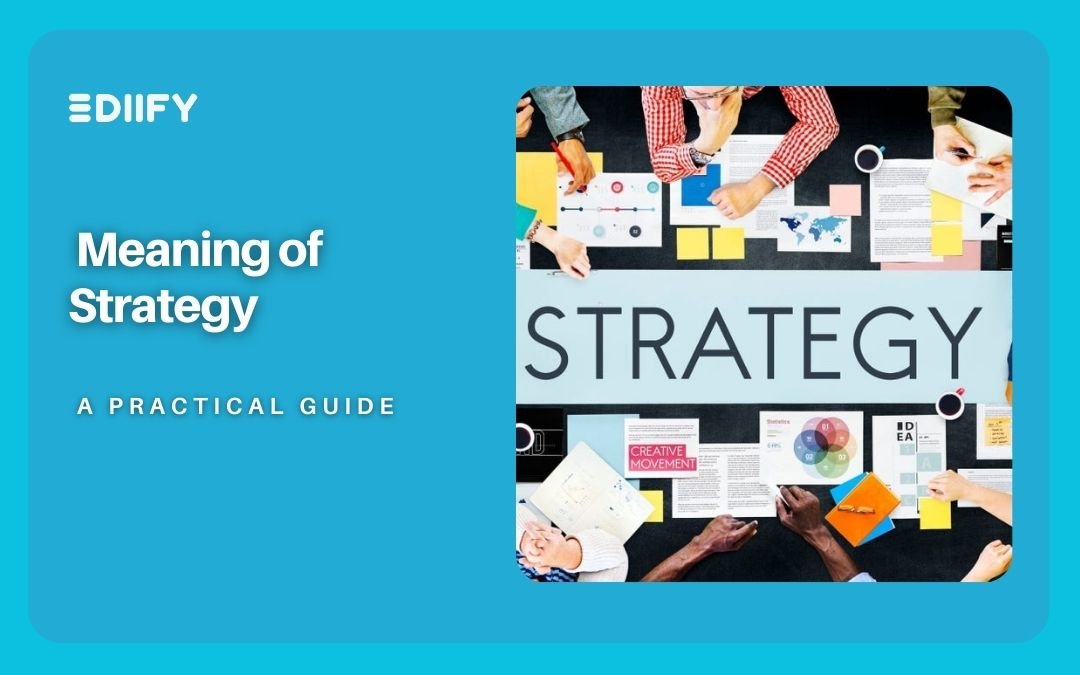Introduction:
In the intricate symphony of business, the term “strategy” resonates across boardrooms, classrooms, and entrepreneurial dialogues alike. It acts as a guiding force, directing organizations toward their goals and objectives. But what precisely does the term “strategy” entail? This blog embarks on a journey to unveil what is the meaning of strategy, delving into its multifaceted nature and exploring its significance in the dynamic realm of business.
Defining the Meaning of Strategy:
At its core, strategy is a comprehensive plan or a series of actions crafted to achieve a specific goal. It entails making choices and allocating resources in a manner that maximizes the likelihood of success. Strategy is not a one-size-fits-all concept; rather, it represents a tailored approach meticulously designed to navigate the unique challenges and opportunities that each business faces.
Here are key facets that contribute to the meaning of strategy:
1. Goal-Oriented Planning:
The strategy revolves around setting clear goals and delineating the path to attain them. It requires a forward-thinking mindset that considers both the current state of affairs and the envisioned future state.

2. Resource Allocation:
Effective strategy involves judiciously allocating resources—whether financial, human, or technological—to optimally support the chosen course of action. It’s about making informed choices within the constraints and opportunities presented.
3. Competitive Advantage:
Strategy often centres on attaining a competitive advantage. This can be achieved through differentiation, cost leadership, innovation, or a combination of these elements. The goal is to position the business uniquely in the market to outperform competitors.

4. Adaptability and Flexibility:
In the dynamic milieu of business, a strategy must be adaptable. It’s not a static plan but a dynamic process that evolves as circumstances change. Successful strategies are flexible and responsive to emerging trends and challenges.

5. Risk Management:
The strategy involves assessing risks and making calculated decisions to mitigate them. It’s about understanding uncertainties and having contingency plans in place to navigate unforeseen developments.
6. Alignment with Vision and Values:
A meaningful strategy aligns with the overall vision and values of the organization. It mirrors the core identity and purpose, ensuring that the pursuit of goals is in harmony with the broader mission.
Conclusion:
In the ever-evolving tapestry of business, the meaning of strategy extends beyond mere planning; it encapsulates a dynamic and purposeful approach to achieving organizational objectives. It represents the art of making choices, allocating resources judiciously, and navigating uncertainties with a clear vision. As businesses chart their courses in the competitive marketplace, understanding the essence of strategy becomes a linchpin for sustained success.
In conclusion, strategy emerges as the guiding force that empowers organizations to carve their paths, seize opportunities, and overcome challenges. It transcends being merely a roadmap; it evolves into a mindset propelling businesses toward their aspirations, fostering resilience and innovation in the face of an ever-changing business environment.


